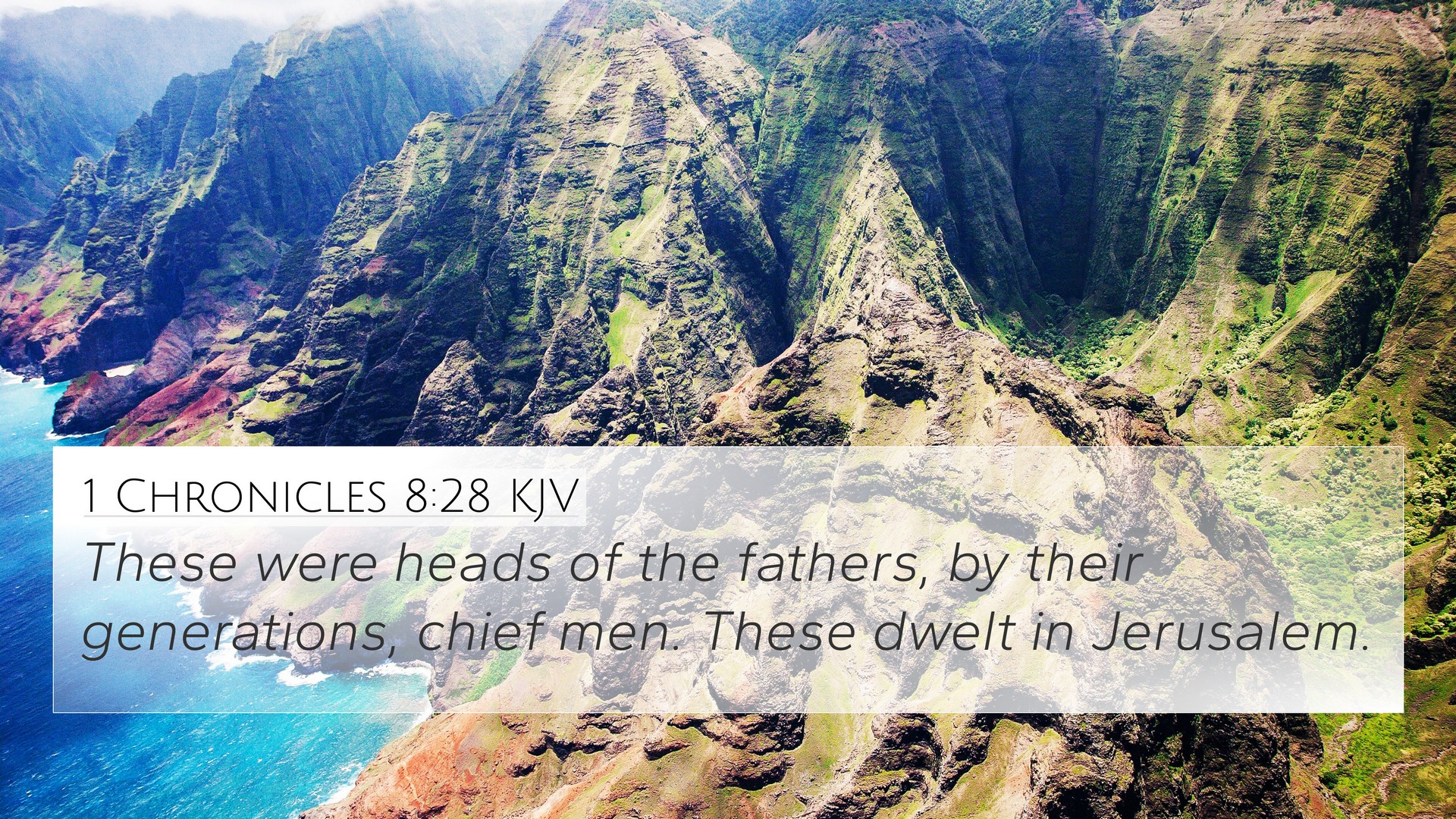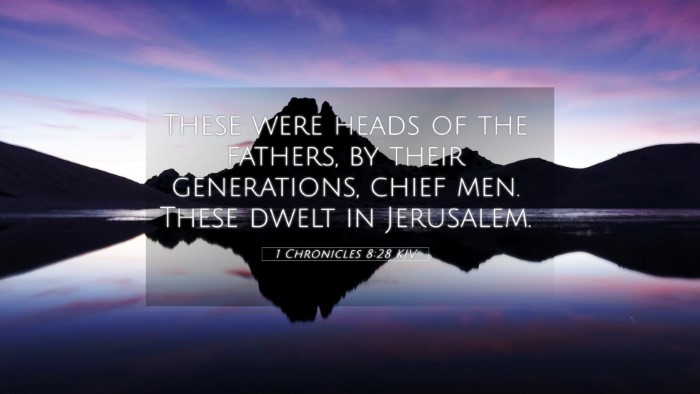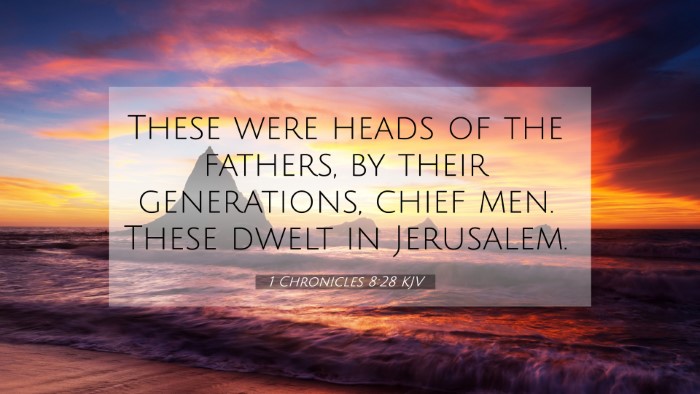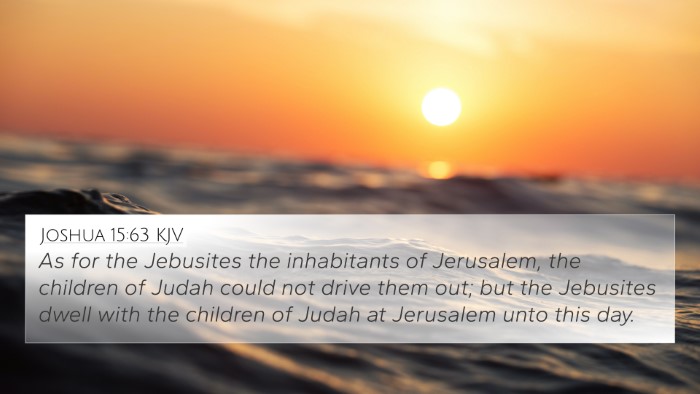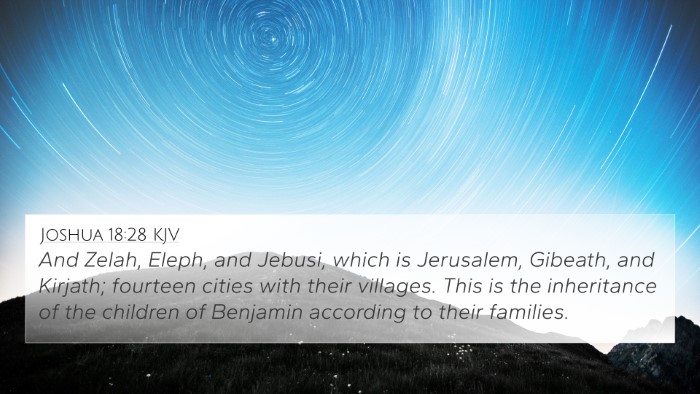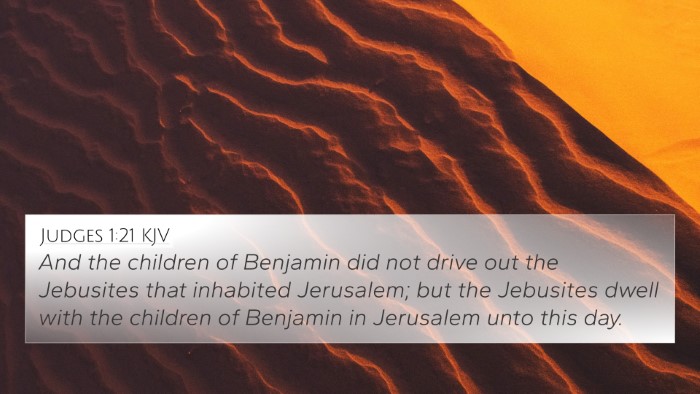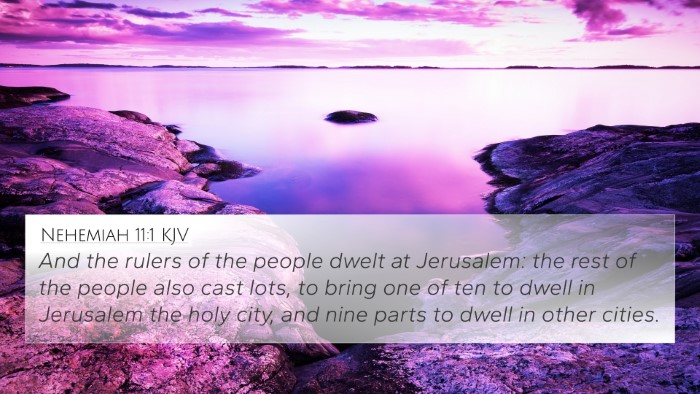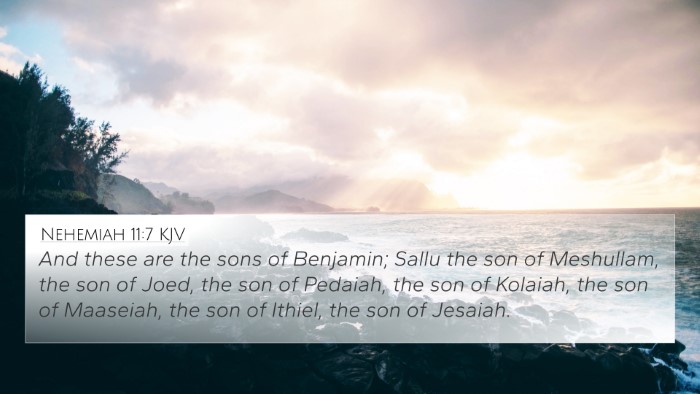Understanding 1 Chronicles 8:28
1 Chronicles 8:28 states:
"These were heads of the fathers' houses of the inhabitants of Gibeon. They dwelt in Gibeon, and the name of their city was Gibeon... "
This verse provides insight into the genealogy and settlement of the families associated with Gibeon, highlighting the importance of familial and geographical ties in the biblical narrative.
Summary of Meaning
The verse captures both genealogical and geographic significance. It emphasizes the importance of family lineage while recording where these families settled. In ancient Israel, understanding one's ancestry and place of residence was vital for social organization and religious observance.
Insights from Public Domain Commentaries
- Matthew Henry's Commentary:
Henry emphasizes the significance of Gibeon, reflecting on the importance of the Gibeonites as individuals who played a notable role in Israelite history. It also highlights the responsibilities these families had as heads of their respective houses, which carried both honor and obligation.
- Albert Barnes' Notes:
Barnes draws attention to the notion that the Gibeonites had integrated into Israelite society, showcasing the dynamics of acceptance and the stratification of social standings in Israel. He notes their relationship with the Israelites and how it reflects larger themes of belonging and identity.
- Adam Clarke's Commentary:
Clarke elaborates on the historical context, suggesting that the mention of Gibeon signifies a broader geographical knowledge and highlights the importance of understanding the locations connected to Israel's history. He posits the significance of recalling such details as a means of preserving heritage.
Bible Verse Cross-References
1 Chronicles 8:28 can be cross-referenced with the following verses to draw deeper connections and thematic parallels:
- Joshua 9:3-6: Discusses the Gibeonites’ clever strategy to survive.
- 2 Samuel 21:1-9: Describes how the Gibeonites were involved in the political dealings of Israel.
- Nehemiah 11:31: Mentions the return of the Gibeonites during Nehemiah's time.
- 1 Chronicles 9:35-44: Lists more about the descendants of Saul, connecting them to the Gibeonites.
- Ezra 2:21: Records the return of the Gibeonites from Babylonian exile.
- Isaiah 10:28-32: Mentions Gibeah, providing geographical context relevant to Gibeon.
- Jeremiah 41:12-14: Illustrates the Gibeonites’ role in the events of the Babylonian conquest.
- Acts 7:43: Stephen comments on the worship of Moloch and the tabernacle in regard to Israel and its history.
- Romans 9:4-5: Reference to the Israelites, expanding the understanding of God’s chosen people, including the Gibeonites as part of the broader narrative.
- Hebrews 11:32-34: Discusses the individuals of faith, perhaps echoing the unknown faith of Gibeonites.
Thematic Bible Verse Connections
This verse highlights themes such as:
- Identity: Understanding one’s roots and heritage plays a crucial role in biblical history.
- Inclusion: The integration of outsiders (Gibeonites) into Israel’s community underscores themes of acceptance.
- Legacy: Acknowledgement of family lines shows the importance of heritage in the biblical narrative.
- Geography: Locations in the biblical story carry spiritual and historical significance.
How to Use Bible Cross-References
For those looking to explore connections between Bible verses, consider the following methods:
- Utilize a Bible concordance to find specific keywords related to your verse of interest.
- Incorporate a Bible cross-reference guide to compare themes and narratives.
- Explore digital tools that allow for cross-referencing Bible study for ease in finding thematic connections.
- Engage in a detailed comparative study of related verses to uncover deeper meanings.
Conclusion
1 Chronicles 8:28 encapsulates more than just a genealogical record; it provides rich insights into identity, inclusion, and the significance of Gibeon in the broader narrative of Israel. Cross-referencing this verse with others helps to establish a comprehensive understanding of the text, its themes, and its implications for biblical studies.
